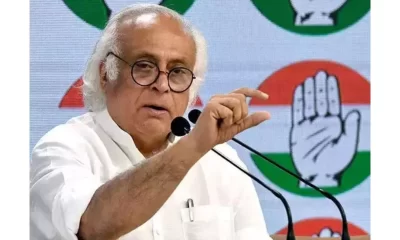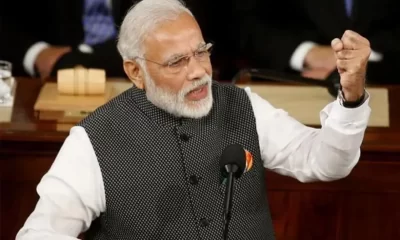India News
Doklam standoff resolved: India starts pullback, China insists it will continue patrolling
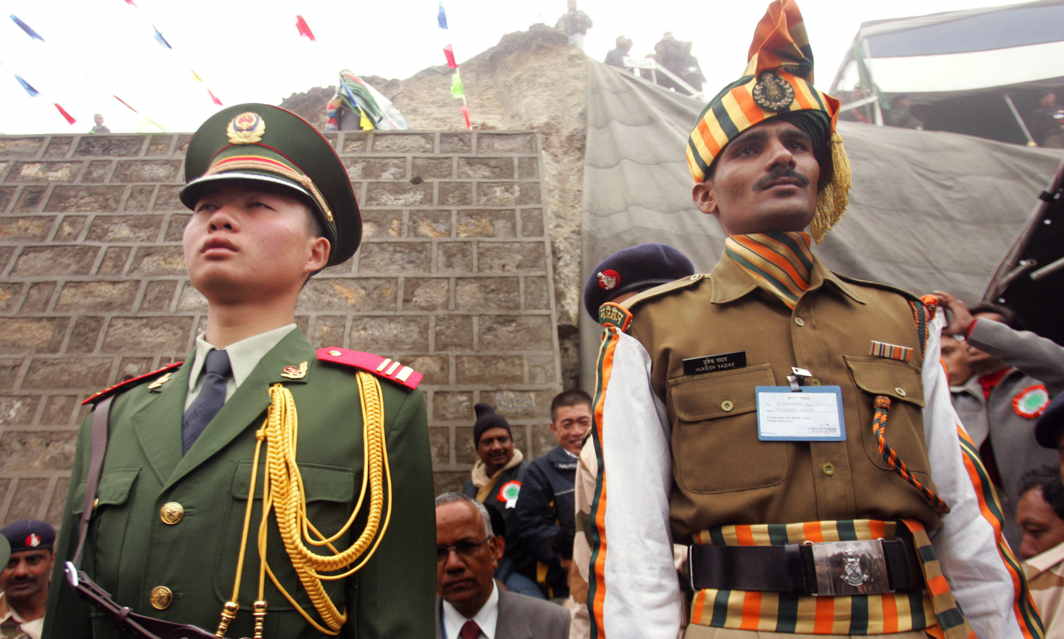
[vc_row][vc_column][vc_column_text]India’s objection was to China constructing a road in Doklam as it would have changed the status quo and rendered India vulnerable in the ‘chicken’s neck’ area – the narrow strip between Nepal, Bhutan and Bangladesh – that connects northeast India with the rest of the country.
Almost three months of the tense standoff between Indian and Chinese troops at Doklam on India-Bhutan-China tri-junction has been resolved peacefully through diplomatic means, with both sides announcing an end to the dispute.
The development comes days before Prime Minister Narendra Modi’s planned visit for a BRICS meet from September 3-5 at Xiamen in China.
India on Monday announced ‘expeditious disengagement of border personnel’ in a press release titled “Doklam Disengagement Understanding”.
“In recent weeks, India and China have maintained diplomatic communication in respect of the incident at Doklam. During these communications, we were able to express our views and convey our concerns and interests. On this basis, expeditious disengagement of border personnel at the face-off site in Doklam has been agreed to and is on-going,” said the MEA in a press statement.
Chinese foreign ministry spokesperson Hua Chunying said that India has pulled back its border personnel and equipment from Doklam, according to media reports. “China has confirmed that Indian troops and equipment have all withdrawn to the Indian side of the border area in Doklam on Monday afternoon. China will continue to exercise its territorial sovereignty in accordance with historical conventions,” Chunying was reported as saying at Monday’s regular press conference.
“The Chinese government highly values its friendly relationship with India. We hope India can fulfil the historic agreement on the border and safeguard the stability of the border area with China,” Chunying added.
When asked if there had been a “mutual disengagement” of troops, the Chinese spokesperson said patrols will continue in Doklam, but that “in accordance with the changes of the situation on the ground, China will make necessary adjustments and deployment in accordance with those changes”. No details were offered. China did not comment on whether it will renew efforts to construct the road.
Indian and Chinese troops have been caught up in a face-off at Doklam since June when China began extending a motorable road on the Doklam plateau that is claimed by both Bhutan and China and is strategically significant for India: it would give China ready access to an area close to the narrow Siliguri corridor that links northeast India with the rest of the country.
China has been building up strategic infrastructure in the Doklam plateau region, upgrading road from Lhasa to Yadong, across the border from Doklam, which allows the 500-km journey to be made in just seven hours.
When China encroached in Doklam to build a road, Indian troops, acting in accordance with India’s foreign policy coordination treaty with Bhutan, crossed on June 16 into Bhutanese-claimed territory and, forming a human chain, physically blocked the movement of Chinese border guards. India also positioned two bulldozers in the Doklam bowl to undo any road construction by the Chinese.
On June 26, Beijing invoked an 1890 agreement between China and Great Britain that specified Mount Gipmochi as the border junction.
Three days later, Thimphu cited agreements in 1988 and 1989 not to disturb the status quo.
The next day, New Delhi pointed out that Beijing had agreed in 2012 to finalise the border tri-junction consultatively and that ‘unilaterally determin[ing] tri-junction points is in violation of this understanding.’
After Indian troops intervened, there were repeated threats by the Chinese media and strident positions taken by official Chinese diplomats. Chinese state-controlled media launched a propaganda war against India, even threatening New Delhi with war. India refused to get drawn into a squabble and maintained that it will defuse the crisis through official diplomatic channels. China kept asking India to withdraw its troops for any meaningful dialogue to take place.
However, India did not respond to China’s verbal attacks insisted on finding a peaceful solution to the issue through dialogues, even as incursions by Chinese troops continued in other sectors and the two sides even came to blows and scuffle involving stoning in Ladakh.
Media reports today interpreted the decision taken by both countries as a victory of India’s diplomacy, which was praised by other international powers as well. [/vc_column_text][/vc_column][/vc_row]
Book reviews
The Hill Of Enchantment Review: Ruskin Bond revisits his life as writer
The book not only delineates Ruskin Bond’s journey as a writer but also depicts the changing literary landscape from the 1950s to recent times.

India’s most loved and prolific writer from the hill, who wrote his first book when he was around 17, Ruskin Bond, turned 90 this year. In his seven decade literary journey, the author has written more than 500 novels, short stories, and poems set mostly in the hills and mountains of India.
The Hill Of Enchantment published by Aleph Book Company, is a memoir of his writing journey, with the subtitle, the story of my life as a writer. Bond revisits the people, mountains, railway stations, rooms, and markets that shaped him as an author. He says, characters in his novels and short stories are mostly inspired by the people he met in his life. The author confesses that some characters also portray his adopted family, friends and colleagues.
Expressing that if a writer wishes to create a little magic with his pen he must find a little magic in his life, Ruskin Bond shares that he only has to open his window to see a magical world – clouds racing across the sky. In the book, the author mentioned how Pari Tibba, Fairy Hill, which he could see from his window, and solitude has influenced his books.
In The Hill of Enchantment, Ruskin Bond pens about how his need for privacy and solitude have inspired his first work, The Room on the Roof, published in 1956. He also portrayed how his frequent visits to a railway station led to the story, Time Stops At Shamli and others. Sharing an anecdote, Bond wrote that his frequent visits to railway stations made him so popular, just like a coolie, he did not have to buy a platform ticket to sit at the railway station.
The book also highlights the ordeal of Indian writers in the days dating back to 1950s to get published as compared to modern writers. It pointed out the change in the literary scene in the twenty-first century, which brought literary festivals along with online forums for writers and publishers. The author says, “writers were becoming faces and mini celebrities”.
Ruskin Bond’s book not only delineates his journey as a writer but also stresses on the changing literary landscape from 1950s to recent times. The book is an utter testament for the aspiring writers.
2024 Lok Sabha Elections
Amit Shah claims NDA has already got 310 seats after 5 phases of Lok Sabha elections
Shah was addressing 2 election rallies in Sambalpur where the BJP has fielded Union Minister Dharmendra Pradhan.
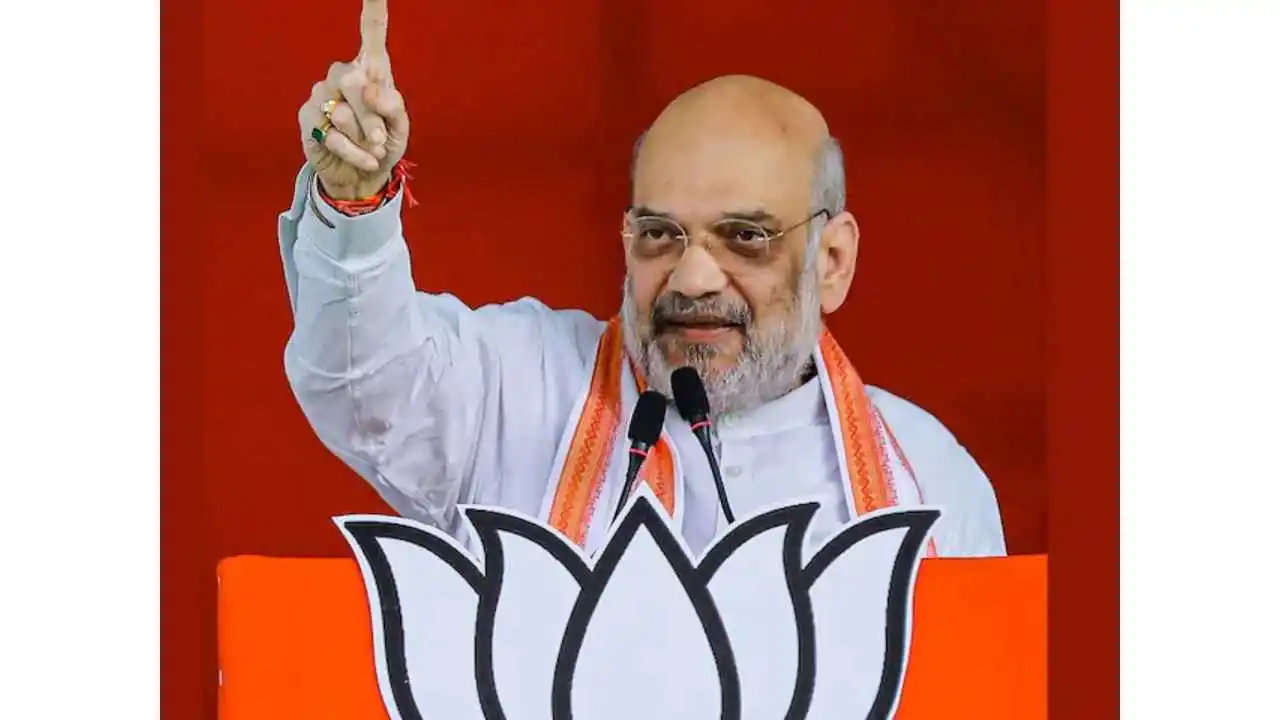
Union Home Minister Amit Shah on Tuesday claimed that the NDA has already bagged 310 seats after the completion of 5 phases of the Lok Sabha polls. He urged the people of Odisha to free the state from babu-raj and allow the BJP to form government at the Centre and also in the state. Shah was addressing 2 election rallies in Sambalpur where the BJP has fielded Union Minister Dharmendra Pradhan.
Shah claimed after the 5th phase of elections, the NDA has already got 310 seats and they will secure 400 plus seats after the 6th and 7th rounds of elections. The union home minister added that Odisha has been ruled by a handful of officers and this election will end the ongoing babu raj in the state.
He said that the tribals of Keonjhar get no benefit even though most of the mines and mineral reserves of the country are located in Keonjhar district. Shah enlisted Modi government’s achievements and said that the prime minister has ensured that there is no terrorism across the country. He added that PoK (Pakistan occupied Kashmir) was with India and it would remain with India.
Shah criticized Congress of being frightened over Pakistan possessing an atom bomb and said PM Modi has given a befitting reply to Pakistan’s terror activities and he does not fear such threat of nuclear bombs. He attacked the previous Congress government for doing nothing for tribals. Shah pointed out that former PM Atal Bihari Vajpayee had formed a separate ministry for tribal affairs while Narendra Modi as the PM has worked to eliminate Naxalism in Odisha, Telangana and Andhra Pradesh.
The Union Home Minister said PM Modi has constituted District Mineral Foundation and given crores of rupees for the development of the tribal region. Shah said the budgetary allocation for tribal affairs has been increased to Rs 1.25 lakh crore during Modi government from Rs 25,000 crore given during the previous UPA regime.
2024 Lok Sabha Elections
Congress accuses PM Modi of communal campaigning, questions his silence on key issues like caste census, reservations
Congress general secretary Jairam Ramesh’s attack came over Modi’s remarks in an interview to the media in which he had said that he has never uttered a word against minorities, and the BJP has not just today but never acted against them.
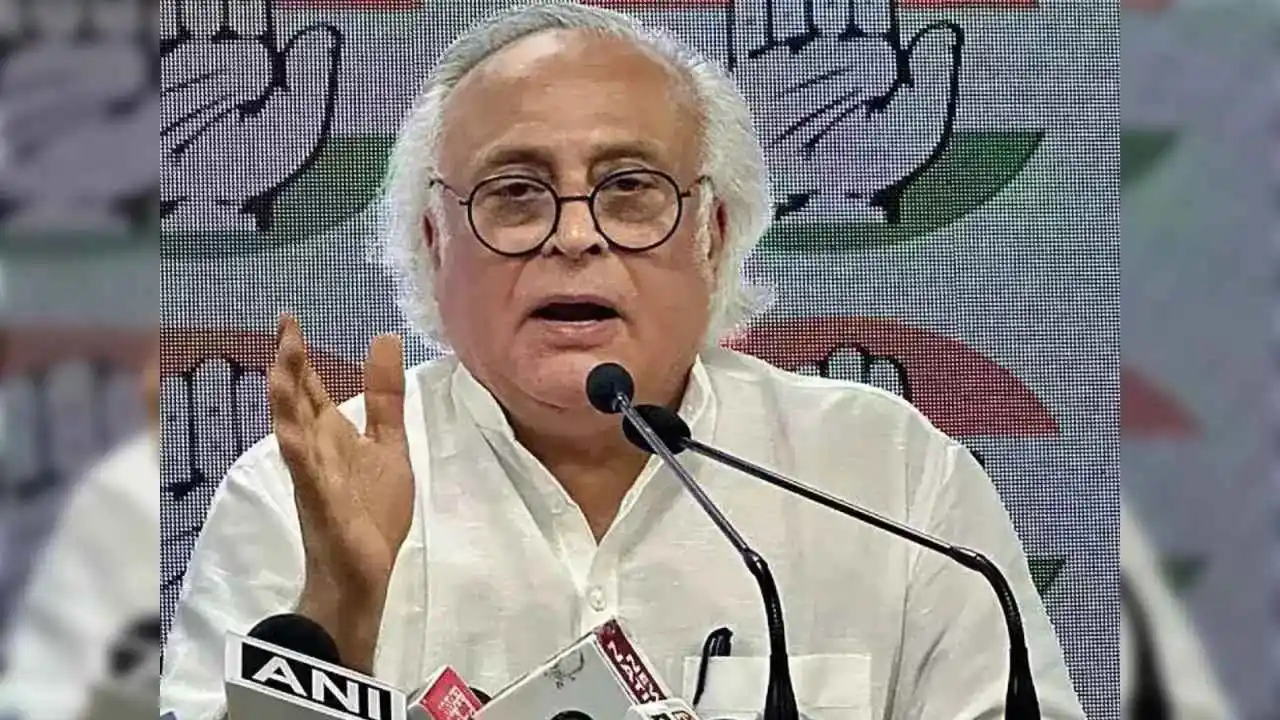
The Congress on Tuesday alleged that Prime Minister Narendra Modi had been indulging in polarisation throughout the election and has prepared a communal pitch, but Congress refused to play on that and pursued its paach nyay agenda. Congress general secretary Jairam Ramesh’s attack came over Modi’s remarks in an interview to the media in which he had said that he has never uttered a word against minorities, and the BJP has not just today but never acted against them.
Jairam Ramesh said that PM Modi’s entire campaign from April 19 has been based on communalisation with the Hindu-Muslim rhetoric throughout and has not talked about Viksit Bharat, issues of the farmers, Modi ki guarantee, women, youth workers, SCs, STs and OBCs.
Speaking about the remarks made by PM Modi on minorities, Ramesh said what nonsense was he talking about? He further added the prime minister is fast losing his memory and he has never had any adherence to truth. Ramesh called PM Modi a jhoothjeevi and said PM Modi does not remember what he said the day before and then claims that he never said it.
Ramesh said the prime minister had raised the issue of Muslim League imprint on the Congress manifesto, the mangalsutra remarks and the allegation that the Congress will give reservations on the basis of religion, which are all bogus statements.
He said this is the prime minister who, when asked some years ago whether he had any remorse at the killings during the Gujarat riots, said even when a small puppy comes under a car, one feels bad. This is the language that he had been using. Ramesh claimed that when Atal Bihari Vajapayee became the prime minister, L K Advani and company wanted a committee to review the basic structure of the Constitution. Ramesh said Congress boycotted that commission and this has always been the objective of the BJP and the RSS.
-
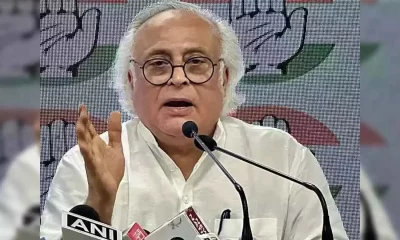
 2024 Lok Sabha Elections6 hours ago
2024 Lok Sabha Elections6 hours agoCongress accuses PM Modi of communal campaigning, questions his silence on key issues like caste census, reservations
-
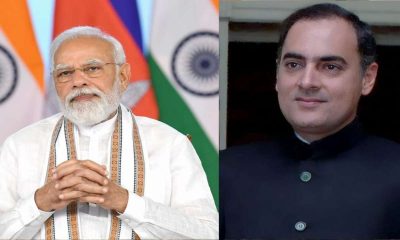
 India News12 hours ago
India News12 hours agoPM Modi pays tribute to former PM Rajiv Gandhi on his death anniversary
-
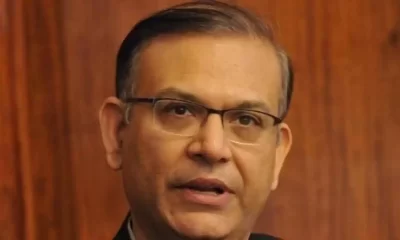
 2024 Lok Sabha Elections12 hours ago
2024 Lok Sabha Elections12 hours agoBJP issues show-cause notice to MP Jayant Sinha for not voting in Lok Sabha Elections
-
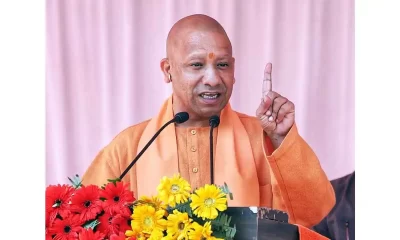
 2024 Lok Sabha Elections7 hours ago
2024 Lok Sabha Elections7 hours agoUP CM Yogi Adityanath says INDIA bloc is planning to loot country by dividing people on caste, religion
-
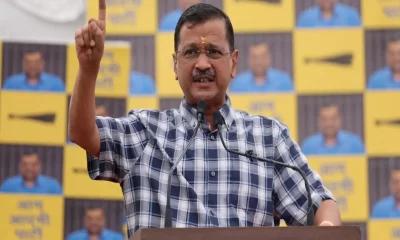
 India News6 hours ago
India News6 hours agoDelhi CM Arvind Kejriwal criticises Union Home Minister Amit Shah’s remark on AAP
-
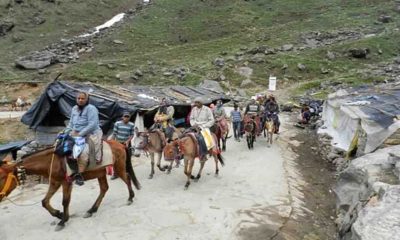
 India News10 hours ago
India News10 hours agoUttarkashi authorities issues order to limit movement of horses and mules on Yamunotri Dham pilgrimage route
-

 Latest world news6 hours ago
Latest world news6 hours agoTurbulence in Singapore Airlines flight leaves 1 dead, 30 injured, plan makes emergency landing in Bangkok
-
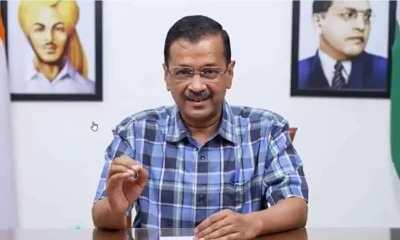
 2024 Lok Sabha Elections9 hours ago
2024 Lok Sabha Elections9 hours agoArvind Kejriwal predicts INDIA bloc will win 300 seats and form next government







